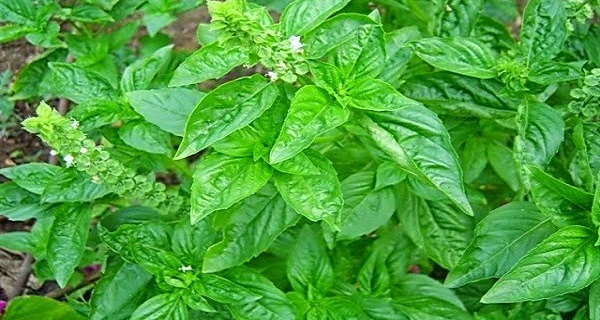There are many reasons why basil should be a staple in your diet.
Basil, or Ocimum basilicum, is a very aromatic plant with oval shaped and mostly green leaves. There are sixty types of basil, each different in looks and taste.
The first written document for basil is over 4,000 years old and originates from ancient Egypt. The word basil itself originates from the Greek word basilicon, which means regal, and is one way of showing the ancient culture’s appreciation of the plant.
Ancient Romans shared a similar respect, saying that any man who gets a basil stem from a woman will forever love her, and so did the Indian people, who used it as a welcome sign but also for treating diabetes, asthma, impotence, kidney stones, infertility and allergies in the holistic Ayurvedic medicine.
Powerful Anti-Oxidant
Basil has very strong anti-oxidative properties. The antioxidants from basil should be a vital part of every diet and healthy lifestyle, as they protect the body from free radicals and protect it from cell ageing, which is one factor contributing to various types of cancer.
One of the antioxidants found in basil is the beta-carotene, which is transformed into vitamin A within the body. Vitamin A prevents cholesterol oxidation and protects the heart and blood vessels in the process. Beta-carotene is also excellent for the prevention of various diseases like asthma, osteoarthritis and rheumatoid arthritis, which are usually the result of free radicals.
Excellent for your heart and blood vessels
Basil is loaded with vitamin B6 and magnesium, which means that it’s great for preventing homocysteines – toxic substances which can accumulate in the body. Magnesium also stimulates cardiovascular health and lowers the risk from heart attacks and arrhythmia, by relaxing the muscles and blood vessels and stimulating better blood flow.
Natural Antibiotic
According to recent research, basil oil positively affects the immune system. Considering the fact that its leaves have strong antibacterial and antiseptic properties, you can use basil to treat bacterial infections.
Basil in the Kitchen
Basil is an integral part of many cuisines, mostly due to its exceptional flavor that fits many different dishes. Basil should always be added to a meal at the end of the cooking, so that it’s taste can be preserved.
If you have a choice, always buy fresh basil because it has a more potent taste. One of the most famous sauces that’s made with basil is the Pesto Genovese, which is made with a strong basil dip and parmesan.
You can also make a very tasty sauce by chopping fresh basil and garlic and adding olive oil. You can use the sauce to spice up a number of dishes, like pasta, rice, and bruschetta.
You can also make an icy desert with basil. Just chop it up and mix it with lemon juice, water, and sugar cane juice and freeze it in your ice cube tray. Once it’s frozen, add the cubes to a blender and blend them together. Serve the frozen mixture as a Mediterranean style ice dessert.
Another way to use it is to make your own colorful Italian salad with fresh basil, mozzarella and tomatoes, but also use it to brew your own basil tea, by adding hot water over freshly chopped basil leaves and leaving it for eight minutes before straining it.
